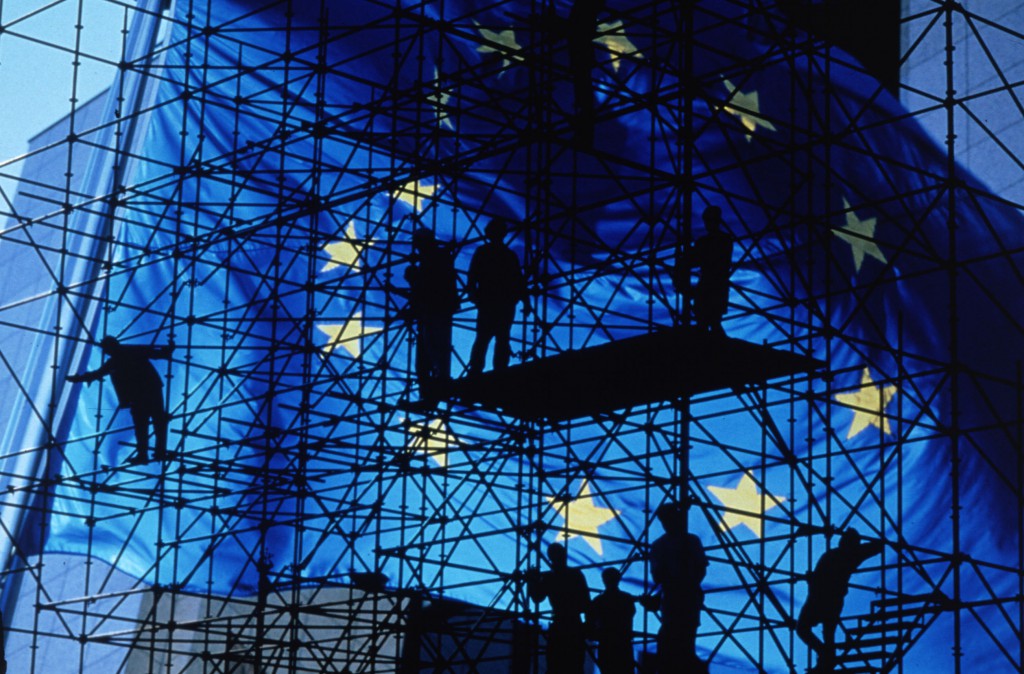The European Union is at a crossroads between facing more divisions and hostilities on the one hand, and working towards the integration of various heritages into the creation of a unified identity on the other.
In an attempt to set right a historical wrong, the Spanish government announced earlier this summer that it would offer Spanish citizenship to the descendants of Sephardi Jews who were expelled from Spain in the 15th century, a symbolic gesture that will grant them a place among other European citizens.
A European citizen is commonly defined as a citizen of a state located within the political boundaries of the European Union, who speaks a language that is officially recognized as one of the official languages of that state, and shared rights, common values and culture traits with other people within that state. But beyond this definition lies the abstract concept of identity.
For centuries, many a philosopher, anthropologist, sociologist, political scientist, and politician to name but a few have attempted to define the moral and practical boundaries of the European identity, a common set of shared values and history.
From the influence of Classical Greece in the construction of the European polity to the battle against totalitarian regimes and the devastation caused by ethnic conflicts in the 20th century, centuries of wars have defined the historical identity of Europeans, this collective memory that we often refer to as our common history. Redeeming the mistakes of the past, like the Spaniards did, is one of the ways in which we can accept our common history, move forward and redefine our identity.
Yet, the situation that we are facing today is akin to what existentialist philosopher Karl Jaspers once called Europe’s torn choice between “Balkanization” and “Helvetization.” In simpler terms, the European Union is at a crossroads between facing more divisions and hostilities on the one hand, and working towards the integration of various heritages into the creation of a unified identity on the other. As the economic crisis persists and the current refugee exodus from the Middle East and Africa continues, the latter has become all the more difficult.
When Jean Monnet suggested the integration of the coal and steel industries of Western Europe in 1950, he understood that the political path of the Old Continent was then closed, and only an economic and monetary union was possible, as European countries remained deeply connected to their political sovereignty. Since then, the situation has seen very little, if any, improvement.
Many Europeans still identify today as “Germans,” “Italians,” or “Spanish” way before acknowledging the existence of their “European identity.” This is not to say that the concepts of European identity or citizenship are meaningless. Rather, they are abstract for some, foreign to many.
In fact, the European Union is still young and in the process of creating its own political identity, something that Aristotle referred to as homonoia, or “like-mindedness and unity” with a common cause. So far, putting an end to conflicts within Europe was the common objective. But today, this should be the establishment of a comprehensive European polity of which European citizens can fully partake.
While article B of the Treaty of Maastricht stipulates that one of the main objectives of the European Union was “to strengthen the protection of the rights and interests of the nationals of its member States through the introduction of a citizenship of the Union,” the concept of citizenship loses its meaning when there is no sense of belonging. In other words, European citizens cannot be fully active in the European democratic polity without having a sense of inclusion, integration and concern.
This problem is particularly prominent among the Roma EU citizens. Not only do they often feel excluded from the political discussions taking place at the European level, but they often do not share the same privileges as other EU citizens, such as the exercise of freedom of movement, the latter being often curtailed because of discrimination and exclusion.
Other examples have shown that the protection of their rights as EU citizens is not guaranteed. An example is them being denied access to basic education or persecution that they face in countries like Czech Republic and Hungary.
This sort of discrimination is far from being a new phenomenon in Europe. But in the European Union, it presupposes the existence of a problematic double standard when it comes to the concept of European citizenship.
French writer Victor Hugo dreamt of a day when all European nations would be part of a united Europe, while preserving their individuality.
In this context, tolerance seems to be the only viable basis for the construction of a European unity. Understanding that the European Union is not a nation-state is another solution, as it will set the grounds for coexistence and cooperation in diversity. The European Union was not created to erase national identities but with the purpose of one day integrating them equally into a wider polity.














Leave a Comment
Your email address will not be published. Required fields are marked with *